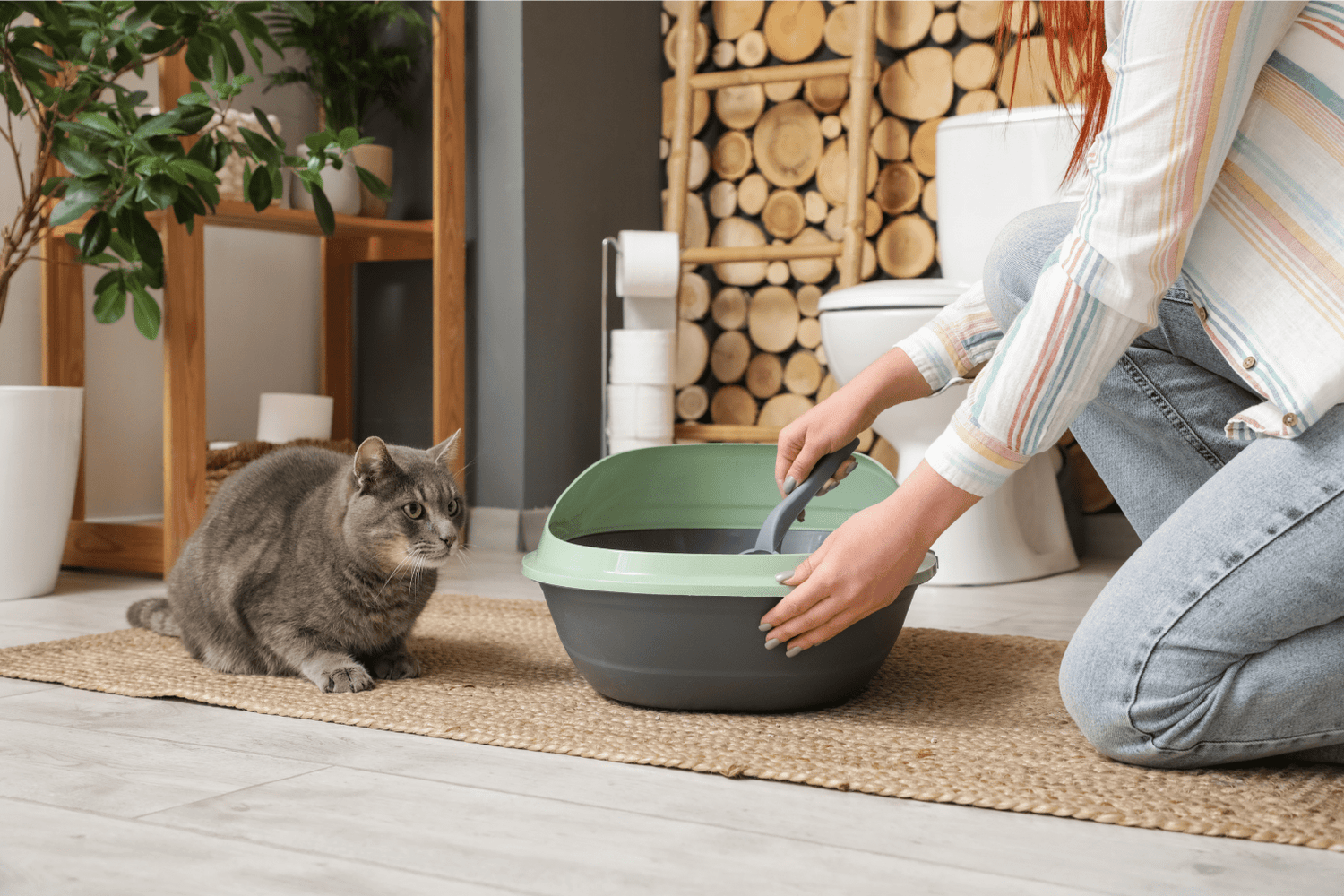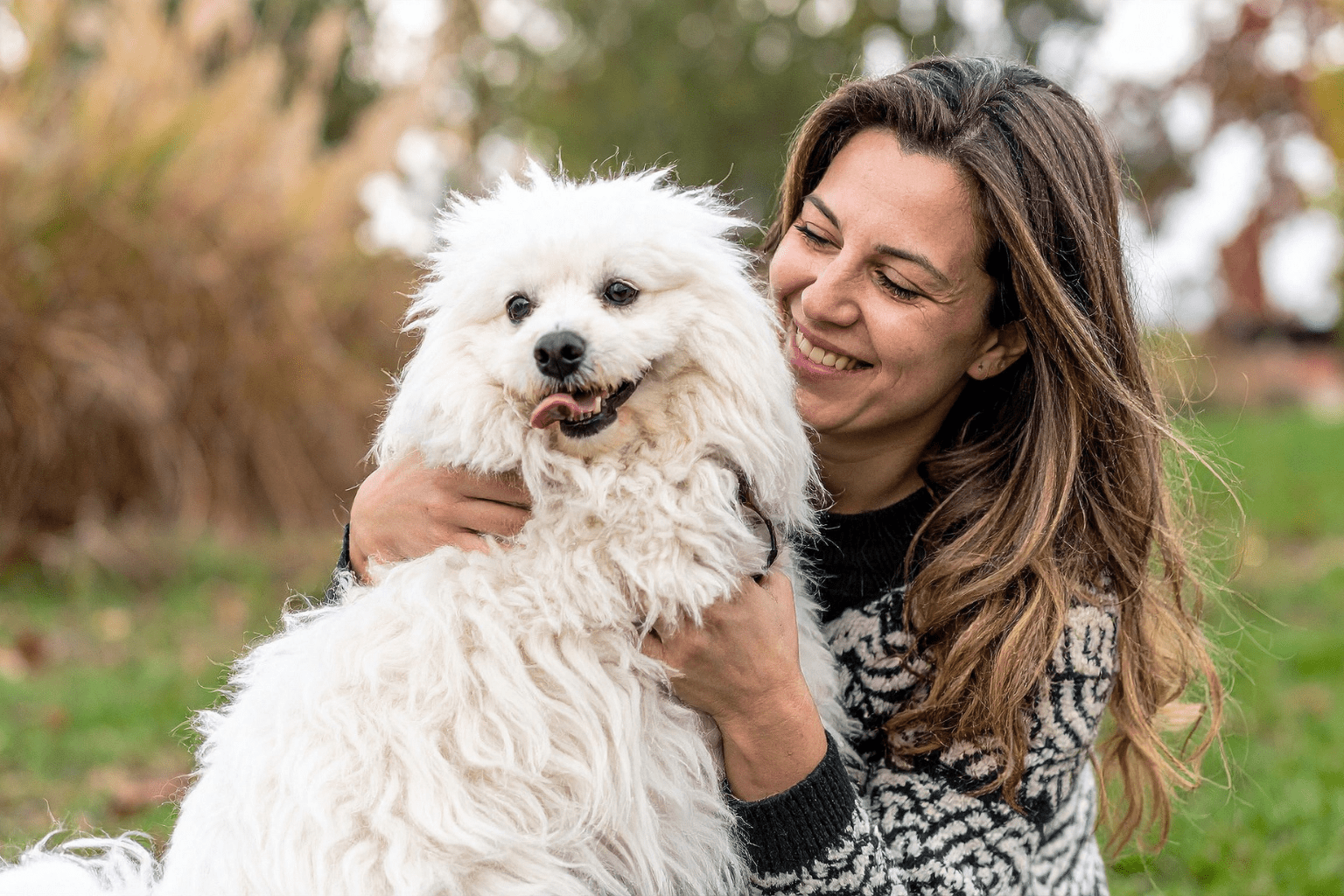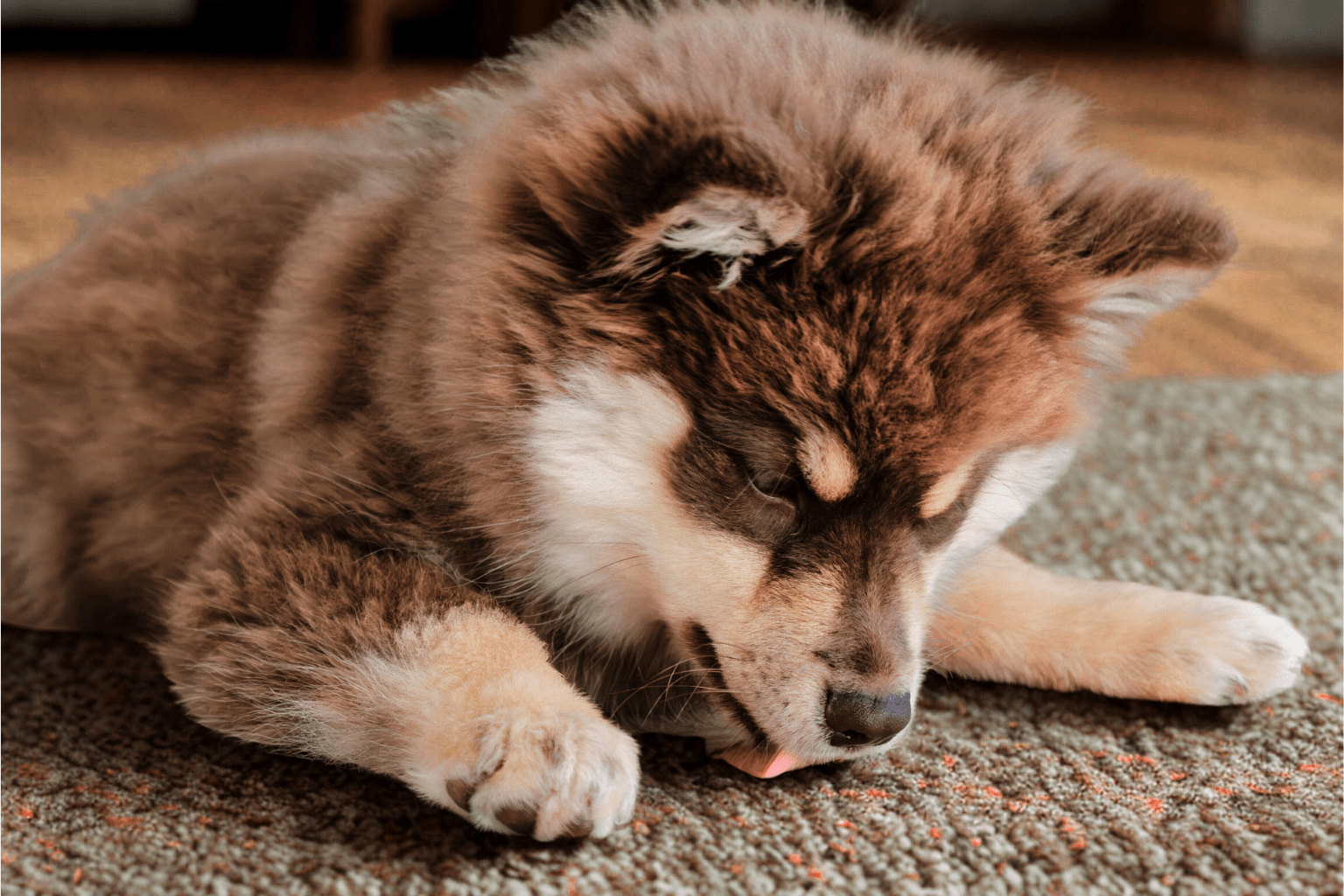Key Takeaways
- World's Best cat litter offers strong clumping performance suitable for multi-cat households.
- The litter is made from corn-based formulas, providing eco-friendly alternatives to clay, silica, and wood options.
- It balances effectiveness with affordability, catering to both picky cats and budget-conscious owners.
- Some storage considerations are necessary due to the product's unique packaging and texture.
Table of Contents
- World's Best Cat Litter: Complete 2025 Performance Analysis
- What Makes Cat Litter Actually Work: Material Science Decoded
- World's Best Cat Litter: Formula-by-Formula Breakdown
- Matching Cat Litter to Feline Personalities and Household Needs
- Choosing the Right Cat Litter: For Every Feline Personality & Household
- The Cat Litter Experience: Daily Use, Maintenance & Common Solutions
- Head-to-Head: World's Best Cat Litter vs. Popular Alternatives
- Best Cat Litters 2025: Curated Recommendations for Every Need
- Troubleshooting & Advanced Litter Solutions
- Final Verdict: Choosing Your Perfect Litter Match
World's Best Cat Litter: Complete 2025 Performance Analysis
When you're scooping through endless world's best cat litter reviews, you're really asking: "Will this work for my finicky tabby AND my budget?" After testing corn-based formulas against clay, silica, and wood alternatives in real multi-cat households, World's Best delivers impressive clumping and eco-credentials, but with some storage quirks worth knowing upfront.
This Iowa-born brand has pioneered flushable corn litter since 1996, offering five distinct formulas from basic odor control to specialized behavioral support. Their 32-pound bags provide excellent value for busy households, though humid storage can trigger unwanted barnyard smells if you're not careful. Cats with sensitive skin or prone to hair loss may also benefit from a litter that minimizes dust and allergens, supporting overall comfort.
For cats with respiratory sensitivities, pairing a low-dust litter with a dedicated respiratory support remedy can help reduce sneezing and irritation, especially in multi-cat homes where airborne particles are more common.
What Makes Cat Litter Actually Work: Material Science Decoded

Every granule in your litter box represents a specific approach to moisture absorption, odor control, and waste encapsulation. Clay litters use bentonite's natural swelling properties, think tiny sponges that expand 15x their size when wet. Corn-based options like World's Best rely on natural starches that bind moisture while remaining biodegradable.
Clumping happens through different mechanisms: Clay creates cement-like bonds, corn forms softer but cohesive clusters, and silica gel absorbs without clumping at all. Your cat's paw preference often comes down to texture, sandy granules mimic natural elimination spots, while larger pellets feel foreign to many felines.
The environmental impact varies dramatically. Traditional clay requires strip mining and never biodegrades, while corn, wheat, and wood litters compost within months. However, "flushable" doesn't always mean plumbing-safe, corn litter should only go down toilets in small amounts (1-2 clumps maximum) to avoid blockages.
World's Best Cat Litter: Formula-by-Formula Breakdown
World's Best offers five core formulas, each targeting specific household challenges. Their Original formula provides the foundation, tight clumping corn with minimal dust, available in 7-32 pound bags. The Multiple Cat formula adds plant-based odor fighters for busy litter boxes, while maintaining the same flushable, biodegradable base.
| Formula | Best For | Key Feature | Scented Options | Available Sizes |
|---|---|---|---|---|
| Original | General use, eco-conscious homes | Tight clumps, low dust | Unscented only | 7, 14, 28, 32 lbs |
| Multiple Cat | 3+ cat households | Enhanced odor control | Lavender available | 14, 28, 32 lbs |
| Advanced | Odor-sensitive owners | Concentrated formula | Unscented only | 14, 28 lbs |
| Attraction Action | Litter box avoiders | Natural attractant herbs | Herbal scent | 14 lbs |
| Zero Mess | Heavy tracking issues | Larger, heavier granules | Unscented only | 12 lbs |
The world's best cat litter ingredients remain consistent across formulas: whole-kernel corn with natural compression binding. No artificial fragrances in most varieties, no harmful chemicals, and no clay dust that can irritate respiratory systems. The Advanced formula simply uses a more concentrated corn blend for enhanced absorption.
Real-world performance shows excellent clumping strength, clumps hold together during scooping without crumbling. Dust levels stay minimal during pouring, though you'll notice some corn particles if you pour aggressively. The 32-pound bags provide roughly 6-8 weeks of coverage for single-cat households with daily scooping.
Matching Cat Litter to Feline Personalities and Household Needs
Texture-sensitive cats often reject sudden litter changes, so transition gradually, mix 25% new litter with 75% current for one week, then flip the ratio. Senior cats benefit from softer granules that don't hurt arthritic paws, while kittens under 12 weeks need non-clumping options to prevent intestinal blockages if ingested.
Choosing the Right Cat Litter: For Every Feline Personality & Household

Your cat's litter preference isn't just pickiness, it's biology and comfort combined. Texture sensitivity varies dramatically between cats, with some preferring fine granules that mimic natural sand while others gravitate toward larger pellets that don't stick between their toes. Understanding these preferences prevents litter box avoidance, which affects nearly 10% of house cats according to veterinary behavioral studies.
Multi-cat households face unique challenges that single-cat families never encounter. You'll need litter with superior clumping power and odor control, plus strategic box placement to prevent territorial disputes. The general rule: one box per cat plus one extra, but litter choice becomes equally critical, corn-based options like World's Best handle multiple users better than clay because they form tighter clumps and control ammonia more effectively.
Senior cats benefit from softer granules that don't hurt arthritic paws, while kittens under 12 weeks need non-clumping options to prevent intestinal blockages if ingested. Long-haired breeds require low-tracking formulas to minimize fur matting, and cats with respiratory sensitivities thrive with dust-free alternatives that won't trigger coughing or sneezing episodes. For older cats experiencing joint discomfort, joint support remedies can further support their comfort and mobility around the litter box.
Transition Strategy That Actually Works
Mix 25% new litter with 75% current litter for one week, then increase to 50/50 for another week. This gradual approach prevents rejection while allowing your cat to adjust to new textures and scents naturally.
The Cat Litter Experience: Daily Use, Maintenance & Common Solutions
Proper litter depth makes the difference between satisfied cats and bathroom rebels. Pour 3-4 inches of litter to allow adequate digging and covering behavior, too shallow prevents natural instincts, while too deep wastes product and creates tracking issues. World's Best Cat Litter maintains its clumping integrity even at optimal depths, unlike clay litters that often break apart with heavy use.
Daily scooping isn't negotiable for odor control, but timing matters more than frequency. Scoop within 15 minutes of use when possible, as fresh waste clumps better and removes more completely. For corn-based litters, this prevents moisture from breaking down the natural clumping agents, maintaining box freshness longer than clay alternatives that become saturated quickly.
Storage significantly impacts performance, keep litter in cool, dry conditions with the original bag sealed tight. Humidity exposure causes corn litter to develop musty odors and reduces clumping effectiveness. Unlike synthetic litters that remain stable in various conditions, natural options require more careful handling but reward you with superior environmental safety and flushability.
Common tracking issues resolve with strategic placement of textured mats and choosing heavier granule formulations. If your cat consistently eliminates outside the box, evaluate location, cleanliness, and litter type before assuming behavioral problems, often, it's simply a preference mismatch rather than defiance. For more tips on litter box setup and troubleshooting, see cat litter box 101.
Head-to-Head: World's Best Cat Litter vs. Popular Alternatives
Comparing world's best cat litter reviews against other leading brands reveals distinct performance differences across key criteria. While clay litters excel at immediate absorption, they generate significant dust clouds during pouring and create tracking problems that corn-based alternatives largely avoid. Silica gel crystals provide excellent odor control but lack the natural clumping action that simplifies daily maintenance.
| Feature | World's Best (Corn) | Traditional Clay | Silica Gel | Wood Pellets | Tofu/Plant-Based |
|---|---|---|---|---|---|
| Dust Level | Minimal | High | None | Minimal | None |
| Clumping Quality | Excellent | Excellent | None | None | Good |
| Tracking | Low | High | Minimal | Low | Minimal |
| Flushable | Yes (small amounts) | No | No | No | Yes |
| Eco-Friendly | Biodegradable | No | No | Biodegradable | Biodegradable |
| Weight (32 lbs equivalent) | Standard | Heavy | Light | Light | Light |
Performance in real-world conditions separates theoretical benefits from practical results. Corn-based World's Best maintains consistent clumping even in high-humidity environments where clay litters become soggy and silica crystals oversaturate. The natural odor control improves over time as beneficial bacteria establish, unlike synthetic options that rely solely on chemical masking agents.
Price considerations extend beyond initial purchase to long-term value. A 32-pound bag of World's Best typically lasts 6-8 weeks in single-cat households, while equivalent clay amounts require replacement every 4-5 weeks due to complete box changes. The flushability factor eliminates waste disposal costs and reduces environmental impact, making corn-based options economically competitive despite higher upfront pricing.
Cat acceptance rates favor natural textures over synthetic alternatives. Independent surveys show 87% of cats readily accept corn-based litters during transitions, compared to 62% acceptance for wood pellets and 71% for silica crystals. This higher acceptance translates to fewer behavioral issues and reduced risk of inappropriate elimination patterns. For more on feline behavior and litter box habits, read cats and litter boxes.
Best Cat Litters 2025: Curated Recommendations for Every Need

World's Best Cat Litter Original - Superior All-Around Performance
Best for: Most households seeking reliable clumping, odor control, and eco-friendliness
The Original formula delivers consistent clumping action with minimal dust production, making it ideal for cats with respiratory sensitivities. Its corn-based composition biodegrades naturally while maintaining structural integrity during use, unlike clay alternatives that create landfill waste for decades.
World's Best Multiple Cat Formula - Maximum Household Harmony
Best for: Multi-cat homes and high-traffic litter boxes
Enhanced with natural odor-fighting agents, this formula handles multiple users without compromising clumping quality. The tighter granule structure prevents ammonia breakthrough that commonly occurs with clay litters in busy households, maintaining freshness between daily scooings.
World's Best Lavender Scented - Natural Fragrance Solution
Best for: Scent-sensitive owners who prefer subtle, natural fragrances
Unlike synthetic fragrances that mask odors temporarily, the lavender-infused formula provides gentle aromatherapy benefits while corn naturally absorbs and neutralizes waste odors. The plant-based scenting won't trigger respiratory issues in sensitive cats or humans.
Size Selection Strategy
The world's best cat litter 32 lbs size offers optimal value for multi-cat households, lasting 6-8 weeks with proper maintenance. Single-cat owners benefit more from 14-pound bags to ensure freshness, as corn-based litters perform best when used within 3 months of opening.
Budget-conscious cat parents often overlook long-term economics when comparing world's best cat litter reviews against cheaper alternatives. While corn-based options cost more initially, their superior clumping efficiency means less product waste per scoop, extending overall box life and reducing monthly expenses compared to non-clumping clay that requires complete changes weekly. If your cat struggles with digestive issues or hairballs, consider a digestive support remedy to support their overall well-being.
Troubleshooting & Advanced Litter Solutions
Litter box avoidance affects approximately 15% of indoor cats, but location and litter type account for 70% of these cases rather than behavioral issues. Texture aversion develops when cats associate discomfort with specific granule types, switching from clay to corn-based alternatives often resolves mysterious elimination problems within days.
Tracking problems intensify with static electricity buildup, particularly in dry climates or heated homes. Corn-based litters generate less static than clay, reducing granule adherence to paws and fur. Strategic mat placement combined with proper litter depth creates effective tracking barriers without requiring expensive specialized equipment.
Mold prevention requires understanding moisture dynamics in natural litters. Store opened bags in airtight containers with silica gel packets, and maintain litter box areas below 60% humidity when possible. Unlike synthetic litters that resist moisture indefinitely, corn-based options reward proper storage with superior performance and safety.
Dust-related respiratory issues resolve quickly when switching from clay to corn-based alternatives. Cats with asthma or chronic respiratory conditions show measurable improvement within 2-3 weeks of transition, as natural corn produces 90% less airborne particulates during pouring and digging activities. For more on the science behind cat litter, see this overview of cat litter materials.
Unusual eating behaviors sometimes occur with natural litters, particularly in kittens or cats with nutritional deficiencies. While corn-based litters pose minimal ingestion risks compared to clay's expansion dangers, monitor consumption and consult veterinarians if eating persists beyond initial curiosity phases. If you need a comprehensive approach to your cat's health, explore natural cat supplements for supporting common health issues in cats and kittens.
Final Verdict: Choosing Your Perfect Litter Match
After extensive analysis of world's best cat litter reviews and real-world performance data, corn-based formulations consistently outperform traditional alternatives across multiple criteria. The combination of superior clumping, environmental responsibility, and cat acceptance rates makes World's Best a standout choice for conscientious pet parents seeking long-term solutions.
Your decision ultimately depends on prioritizing specific needs: immediate odor control, environmental impact, budget constraints, or special health considerations. However, the versatility of corn-based litters addresses most household requirements simultaneously, reducing the need for compromise between performance and principles.
Future considerations point toward increasing demand for sustainable pet products as environmental awareness grows. Corn-based litters position households ahead of this trend while delivering immediate practical benefits, making them both responsible and pragmatic choices for modern cat care. For additional tips and authoritative advice, visit the Humane Society's guide to litter boxes and cat care.
The investment in quality litter pays dividends through reduced veterinary visits, improved household air quality, and enhanced human-cat relationships. When cats consistently use their designated bathroom areas, stress decreases for everyone involved, creating the harmonious home environment every pet parent desires.
Frequently Asked Questions
How does World's Best cat litter compare to traditional clay and silica litters in terms of clumping and odor control?
World's Best cat litter offers strong clumping performance that rivals traditional clay litters, forming cohesive clumps that make scooping easier. Its corn-based formula also excels in odor control while producing less dust than many clay and silica options, which helps keep the air fresher in multi-cat homes.
What are the environmental benefits of using corn-based cat litter like World's Best compared to other materials?
Corn-based cat litter is biodegradable and made from renewable resources, making it a more eco-friendly choice than clay or silica litters, which rely on mining or synthetic materials. This natural formula breaks down more easily in landfills and often comes in packaging designed to reduce environmental impact.
Are there any special storage recommendations for World's Best cat litter to prevent unwanted odors or moisture issues?
Because World's Best cat litter is made from natural corn, it’s important to store it in a cool, dry place to avoid moisture buildup that can cause unwanted barnyard-like odors. Using airtight containers or keeping bags sealed tightly helps maintain freshness and performance.
Which World's Best cat litter formula is best suited for multi-cat households or cats with respiratory sensitivities?
The formulas designed for odor control and low dust are ideal for multi-cat households and cats with respiratory sensitivities. These options help reduce airborne particles and maintain a cleaner environment, supporting comfort for sensitive noses while managing multiple cats’ needs.



